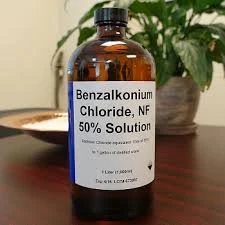polycarboxylic acid uses
The Multifaceted Uses of Polycarboxylic Acids
Polycarboxylic acids are a class of organic compounds characterized by the presence of multiple carboxylic acid groups (-COOH) in their molecular structure. These compounds have garnered considerable attention in various industries due to their versatile properties and applications. From pharmaceuticals to agriculture, polycarboxylic acids play a crucial role in advancing technology and improving product performance.
Pharmaceutical Applications
One of the primary uses of polycarboxylic acids is in the pharmaceutical industry. Many drugs contain polycarboxylic acid moieties that enhance their solubility and bioavailability. For instance, citric acid, a well-known polycarboxylic acid, is commonly used as a stabilizing agent in pharmaceuticals. By forming complexes with various medications, it helps to improve their stability and effectiveness. Additionally, polycarboxylic acids are also employed in the synthesis of drug delivery systems, where their ability to form hydrogels and nanoparticles can be harnessed for targeted delivery of therapeutic agents.
Agricultural Uses
In agriculture, polycarboxylic acids are valued for their ability to improve soil health and enhance crop yield. They are used as chelating agents to bind essential nutrients such as calcium, magnesium, and iron, making these nutrients more available to plants. This is particularly important in areas with poor soil conditions where nutrient availability is limited. For example, humic acids, which are a class of polycarboxylic acids derived from soil organic matter, are widely used in soil amendment products. These acids help to improve soil structure, increase water retention, and promote microbial activity, ultimately leading to healthier crops.
Industrial Applications
polycarboxylic acid uses

Polycarboxylic acids also find extensive applications in various industrial processes. They serve as important intermediates in the production of polymers, resins, and surfactants. One notable example is polyacrylic acid, which is widely used as a thickening agent in cosmetics and personal care products. Its ability to retain moisture makes it an essential ingredient in lotions, creams, and shampoos. Moreover, polycarboxylic acids are used in the synthesis of superabsorbent polymers, which are crucial for products such as diapers and feminine hygiene products, providing high levels of absorption and retention.
Environmental Impact
Another significant application of polycarboxylic acids is in environmental remediation. These compounds can be employed to sequester heavy metals and pollutants from contaminated water and soil. By forming stable complexes with toxic metals, polycarboxylic acids facilitate their removal or immobilization, which is a critical step in the cleanup of contaminated sites. This application highlights the dual role of polycarboxylic acids as both functional agents and environmental protectors.
Food Industry
In the food industry, polycarboxylic acids serve various functions. Acidic preservatives, such as sorbic acid and benzoic acid, are used to inhibit microbial growth and extend the shelf life of food products. Furthermore, the acidity provided by these compounds can enhance flavor and improve the overall quality of food. In addition, polycarboxylic acids play a role in modifying food textures, contributing to the desirable mouthfeel and consistency in products like sauces and dressings.
Conclusion
The diverse applications of polycarboxylic acids demonstrate their importance across multiple sectors, including pharmaceuticals, agriculture, industry, environmental remediation, and food processing. As research continues to unveil new properties and potential uses of these compounds, we can anticipate even broader applications emerging in the future. The versatility of polycarboxylic acids not only enhances product performance but also contributes to sustainable practices, making them invaluable in today’s industrial landscape. Understanding and harnessing the unique properties of polycarboxylic acids will undoubtedly lead to innovative solutions and advancements across various fields.
-
2-Phosphonobutane-1,2,4-Tricarboxylic Acid: Scale & CorrosionNewsAug.29,2025
-
Premium Isothiazolinones | Broad-Spectrum Biocidal SolutionsNewsAug.28,2025
-
LK-319 Special Scale And Corrosion Inhibitor For Steel Plants: Advanced Solutions for Industrial Water SystemsNewsAug.22,2025
-
Flocculant Water Treatment: Essential Chemical Solutions for Purification ProcessesNewsAug.22,2025
-
Isothiazolinones: Versatile Microbial Control Agents for Industrial and Consumer ApplicationsNewsAug.22,2025
-
Scale Inhibitor: Key Solutions for Water System Scale PreventionNewsAug.22,2025





